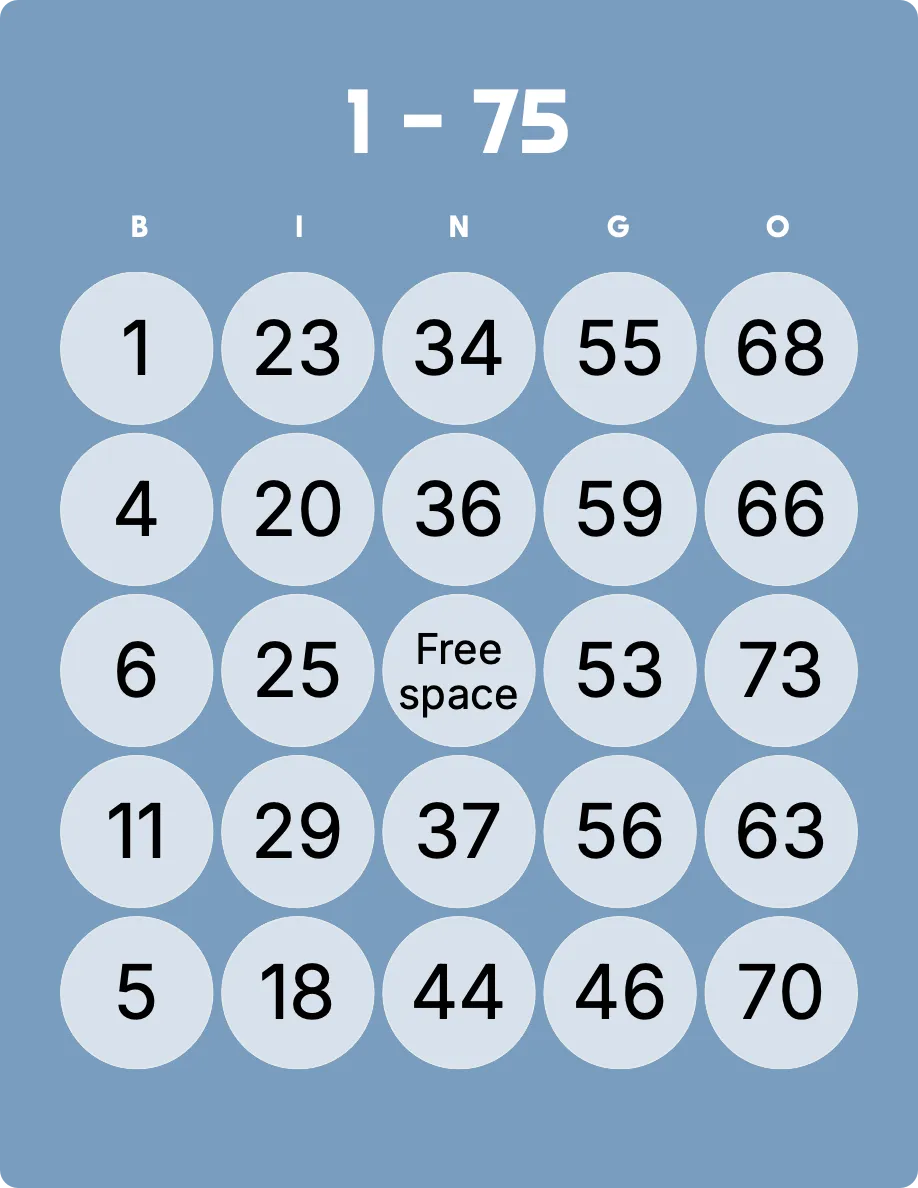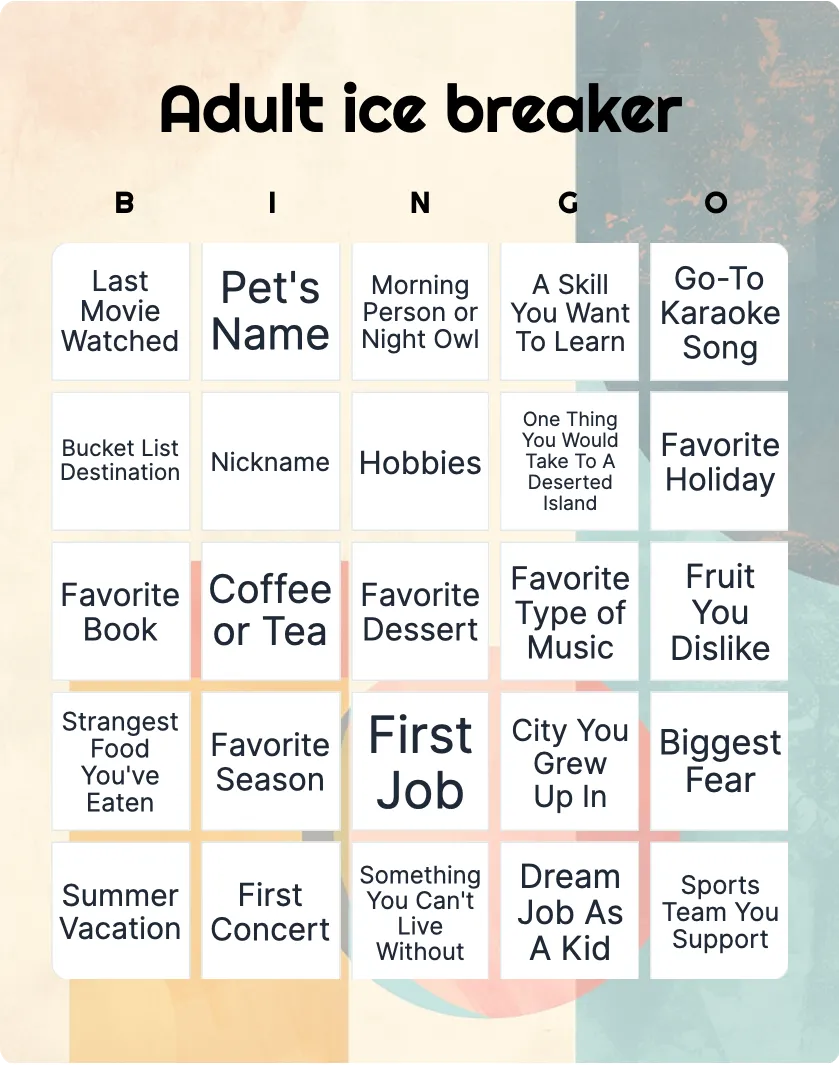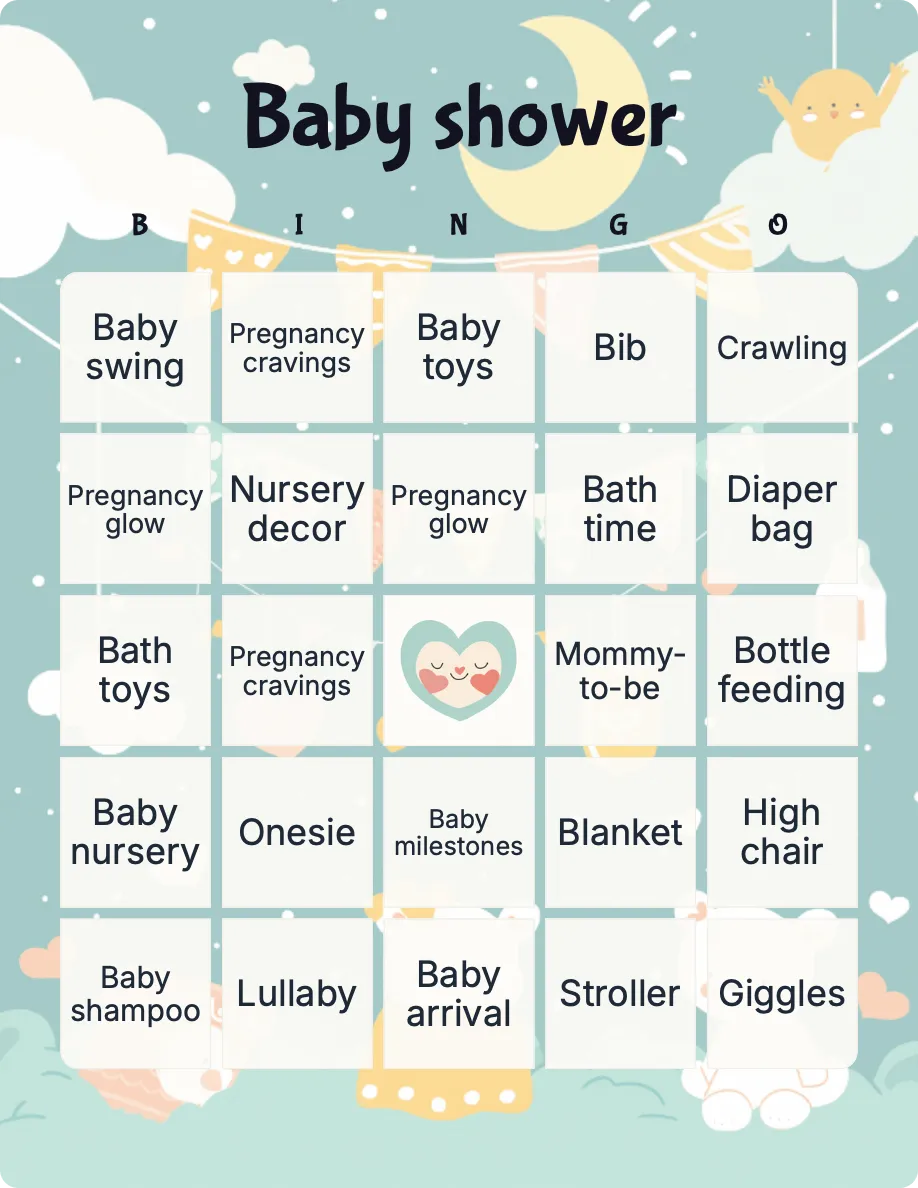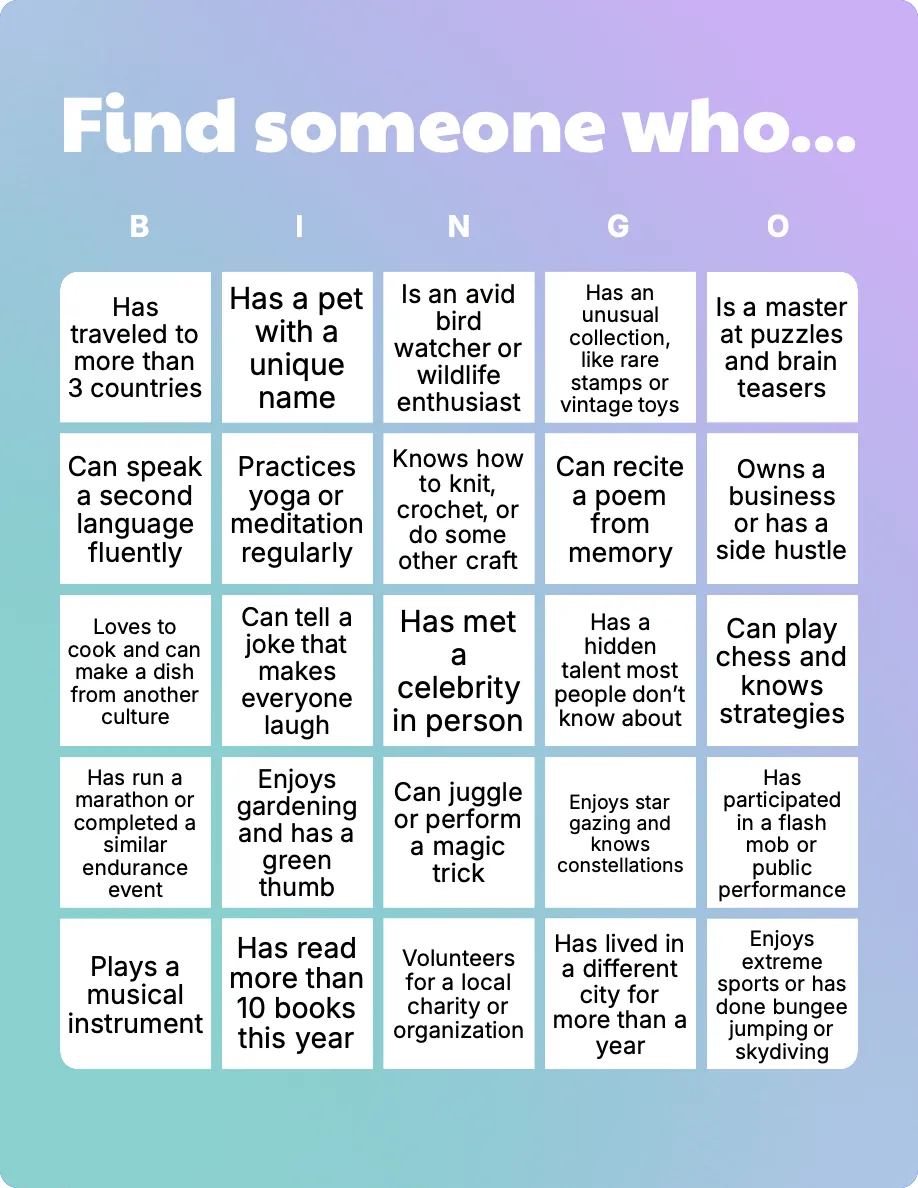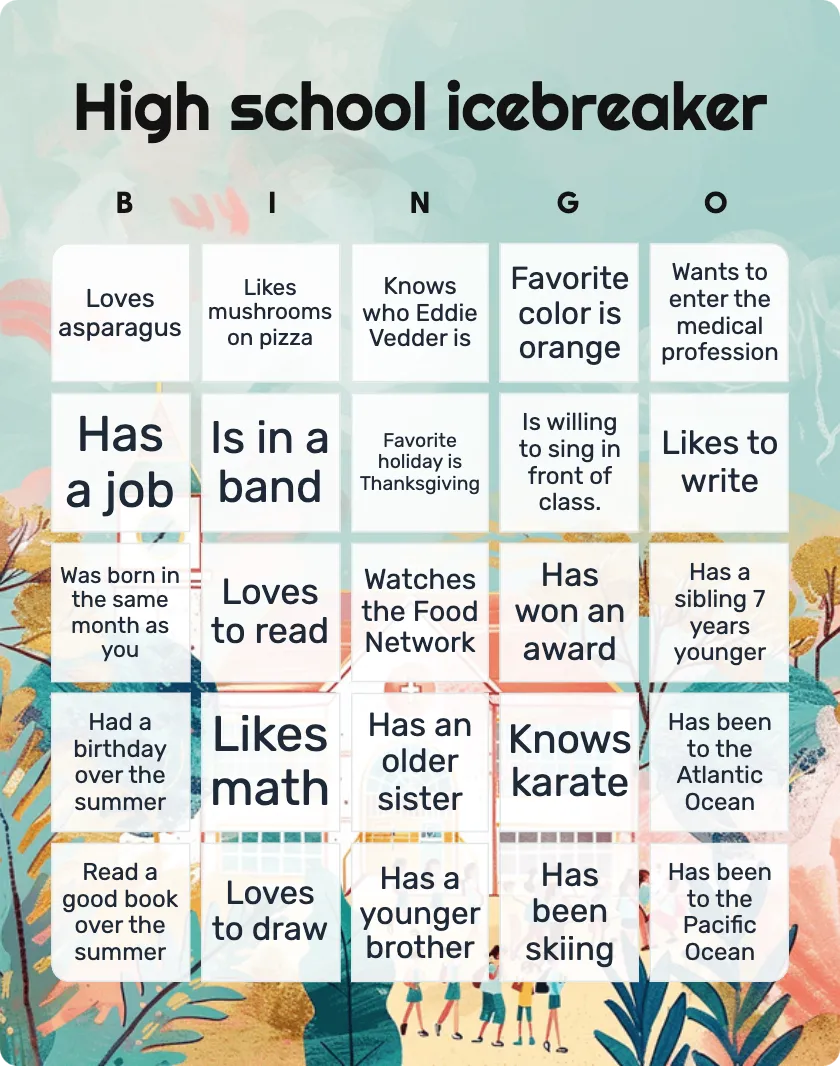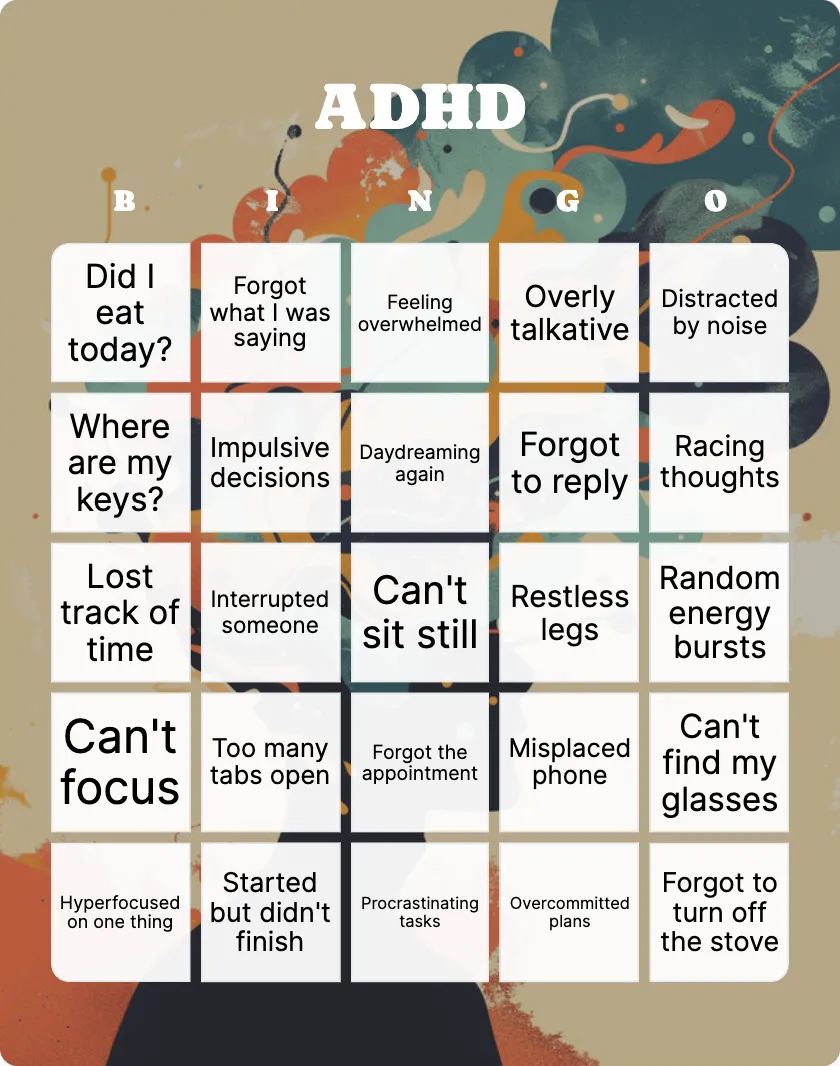
ADHD bingo
- Unlimited printing
- Fully editable
- Play online
Discover our ADHD Bingo, a fun and interactive tool designed to help understand and discuss ADHD symptoms. Ideal for teachers, parents, or support groups seeking engaging ways to educate about ADHD.
Items in this card
25- Did I eat today?
- Where are my keys?
- Lost track of time
- Can't focus
- Hyperfocused on one thing
- Forgot what I was saying
- Impulsive decisions
- Interrupted someone
- Too many tabs open
- Started but didn't finish
- Feeling overwhelmed
- Daydreaming again
- Can't sit still
- Forgot the appointment
- Procrastinating tasks
- Overly talkative
- Forgot to reply
- Restless legs
- Misplaced phone
- Overcommitted plans
- Distracted by noise
- Racing thoughts
- Random energy bursts
- Can't find my glasses
- Forgot to turn off the stove
More about this bingo card
ADHD Bingo is a unique and supportive game designed for individuals with ADHD, their friends, families, and educators. It's a fun, engaging way to recognize and celebrate the everyday experiences and challenges faced by those with ADHD. This game provides a playful way to discuss ADHD-related scenarios, promote understanding, and foster empathy. By turning daily ADHD experiences into a bingo game, we create a space for laughter, learning, and connection.
How to play ADHD bingo

Understanding ADHD: The educational play
- Setting the empathetic scene: Hand out bingo cards featuring common ADHD experiences like 'Forgot Where I Put My Keys,' 'Started a New Project,' 'Got Distracted,' or 'Hyper-Focused on a Hobby.'
- Life's unpredictable moments: As you or someone you know experiences these typical ADHD moments, mark them off on your bingo card.
- Bingo with a message: The first person to complete a row or pattern can share a personal story or insight related to one of the marked squares.
Classroom inclusion: The supportive school environment

- Educational awareness: Share ADHD bingo cards in a classroom setting to foster understanding among students.
- Learning and laughing together: Encourage students to mark off experiences as they observe or learn about them in a school context.
- Empathetic education winner: Celebrate the game with a group discussion about ADHD and how to support classmates who experience it.
Family support: The home connection

- Creating an understanding home: Distribute bingo cards among family members to increase awareness and empathy for a relative with ADHD.
- Everyday family life: As family members observe or experience ADHD-related scenarios, they mark them off on the cards.
- Home is where the heart is: Use the completion of the bingo game as a way to start conversations about understanding and supporting each other.
Virtual community: The online support group
- Digital connection: Share digital bingo cards in online ADHD support groups or forums.
- Streaming stories and support: Discuss ADHD experiences through video calls or chat, marking off relevant squares.
- Cyber circle of support: Recognize the bingo achievement with a virtual celebration or a shared online resource about ADHD.
Understanding ADHD: A closer look

ADHD, or Attention Deficit Hyperactivity Disorder, is a neurodevelopmental disorder characterized by symptoms like inattention, hyperactivity, and impulsivity. It affects people of all ages and can impact various aspects of life, including school, work, and relationships.
Strategies for managing ADHD
- Routine and structure: Establishing a consistent daily routine can help manage ADHD symptoms.
- Break tasks into smaller steps: This makes tasks more manageable and less overwhelming.
- Use of reminders and alarms: Technology can be a great tool to keep track of tasks and appointments.
- Regular physical activity: Exercise can help improve focus and reduce hyperactivity and impulsivity.
- Mindfulness and relaxation techniques: Practices like meditation can help increase focus and reduce stress.
Support for individuals with ADHD
- Professional guidance: Therapists, counselors, and ADHD coaches can provide valuable support and strategies.
- Support groups: Connecting with others who have ADHD can offer a sense of community and understanding.
- Educational accommodations: In a school setting, individualized education plans (IEPs) or 504 plans can provide necessary support.
🌟 Top tip
Using ADHD Bingo as a conversation starter can help demystify the condition and promote a more supportive environment. It's a playful way to acknowledge the challenges while also celebrating the unique strengths and perspectives that individuals with ADHD bring to our lives.
Ready to embrace the journey?
ADHD Bingo is more than a game; it's a tool for empathy, education, and connection. It's a lighthearted approach to fostering understanding and support for individuals with ADHD. So let's play, learn, and grow together in our journey with ADHD.

The Bingo Card Creator Team
We're the Bingo Card Creator Team, bringing you diverse, engaging bingo templates and content.

